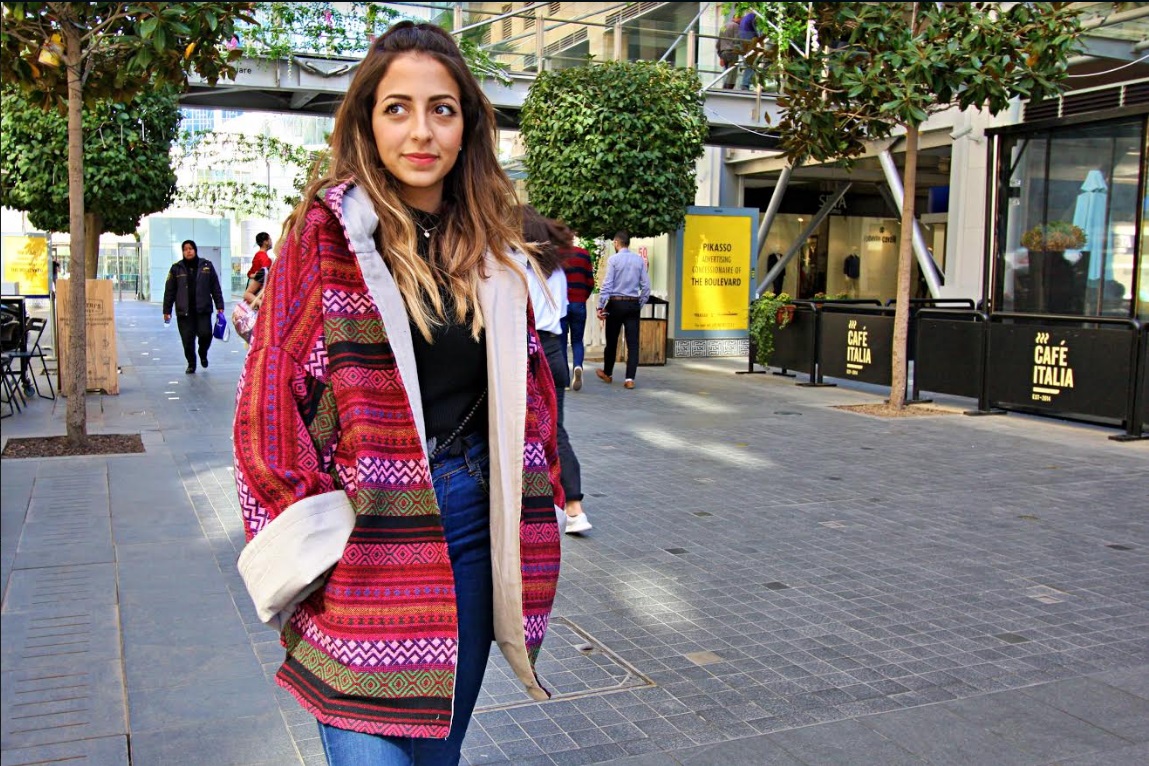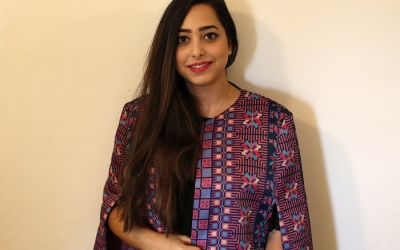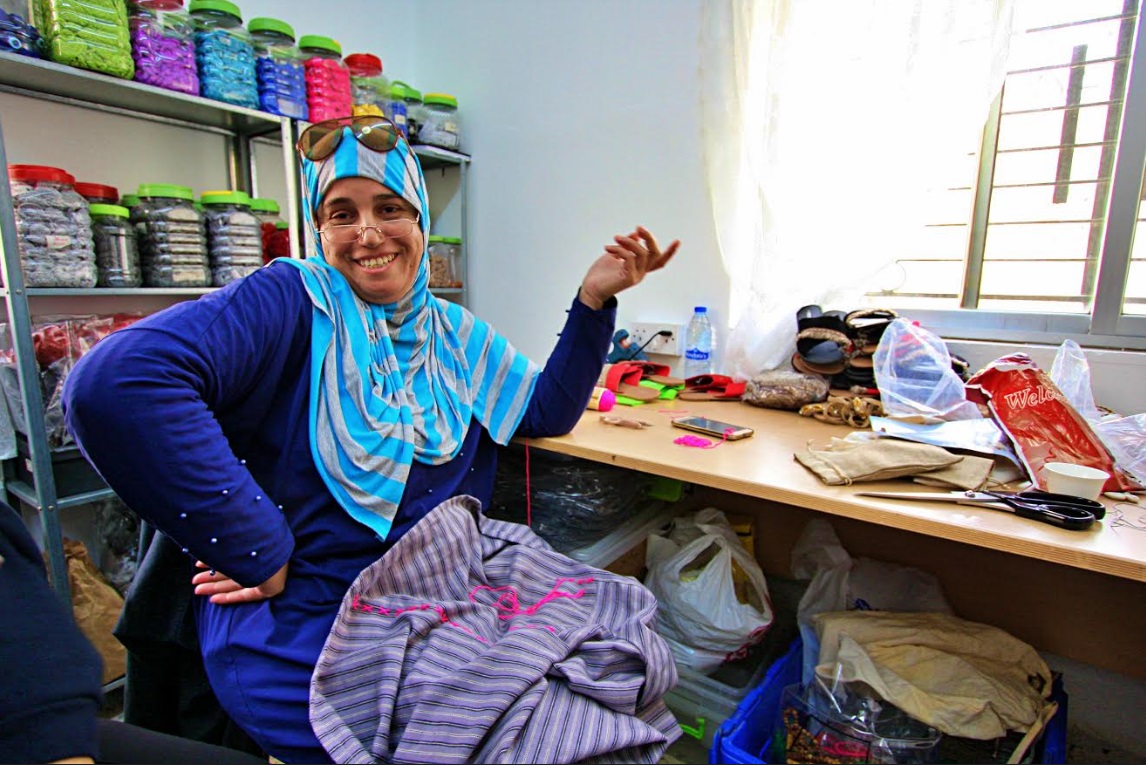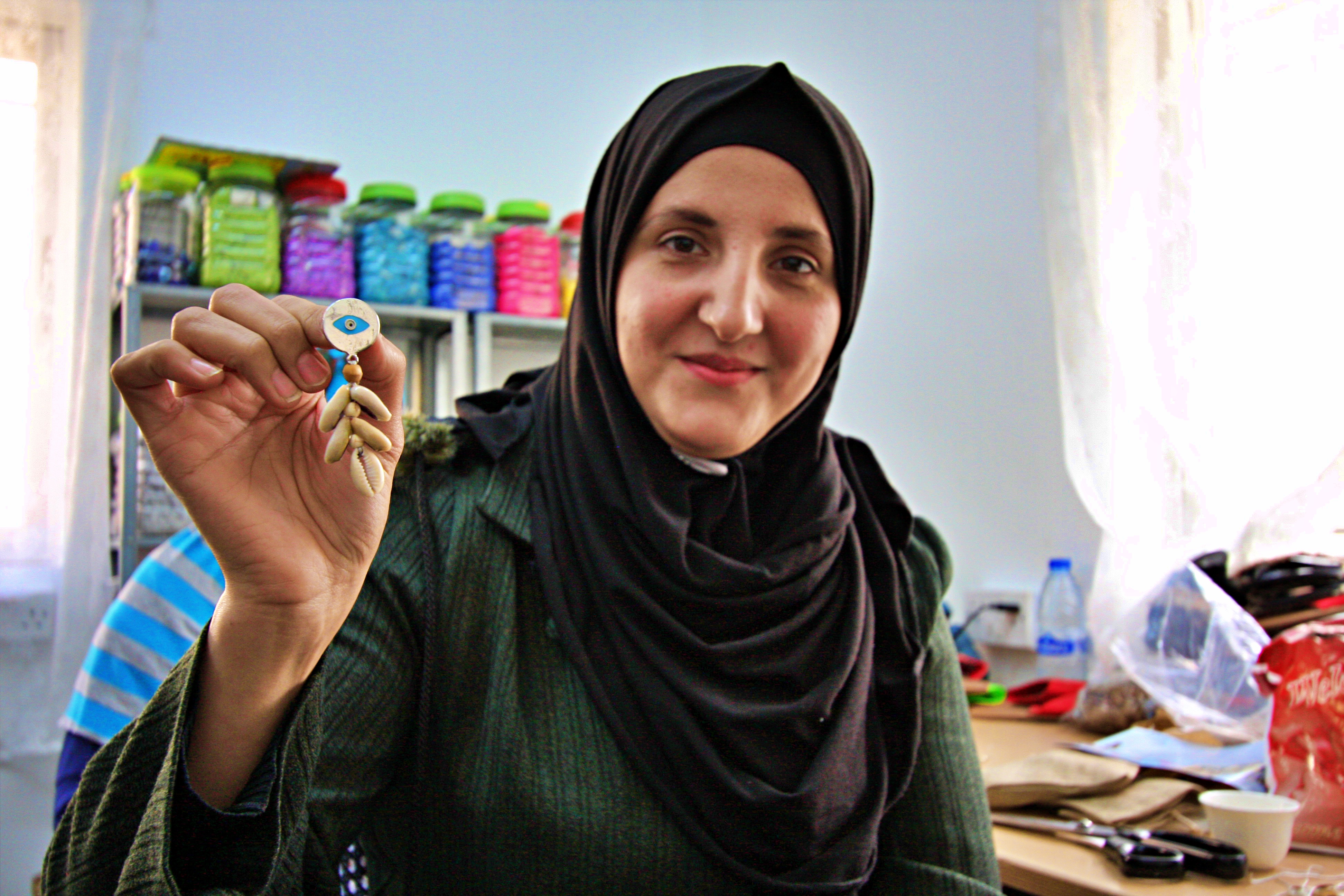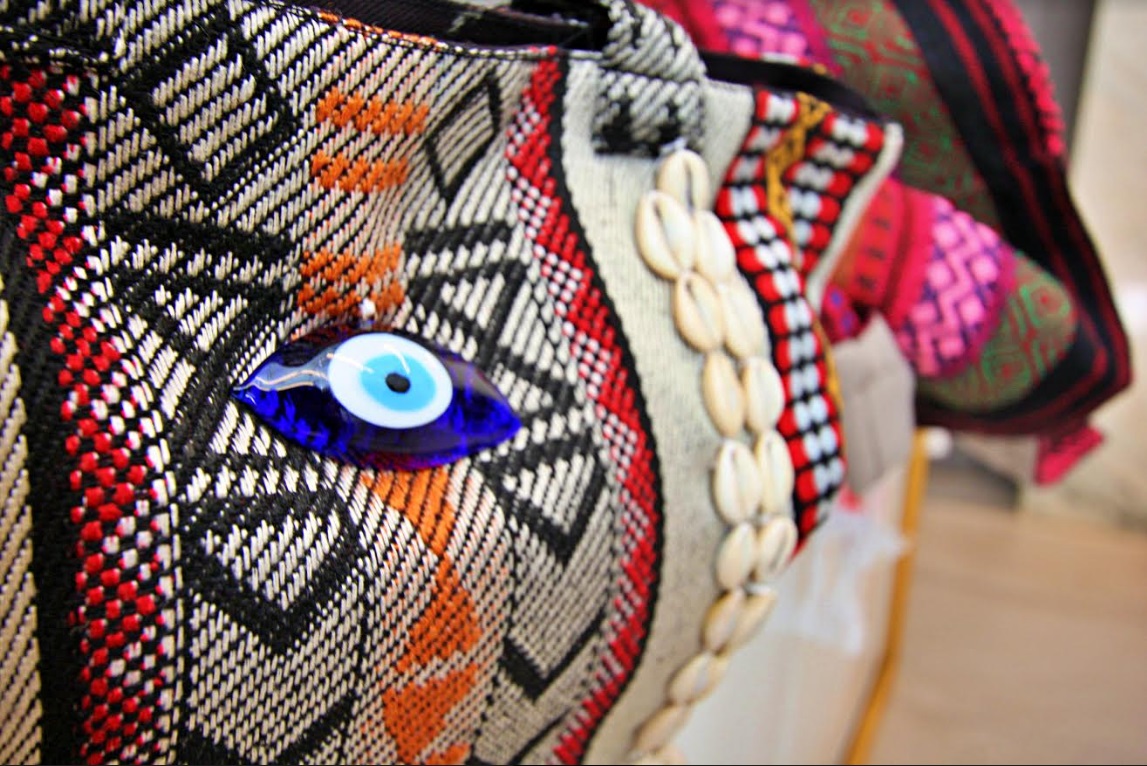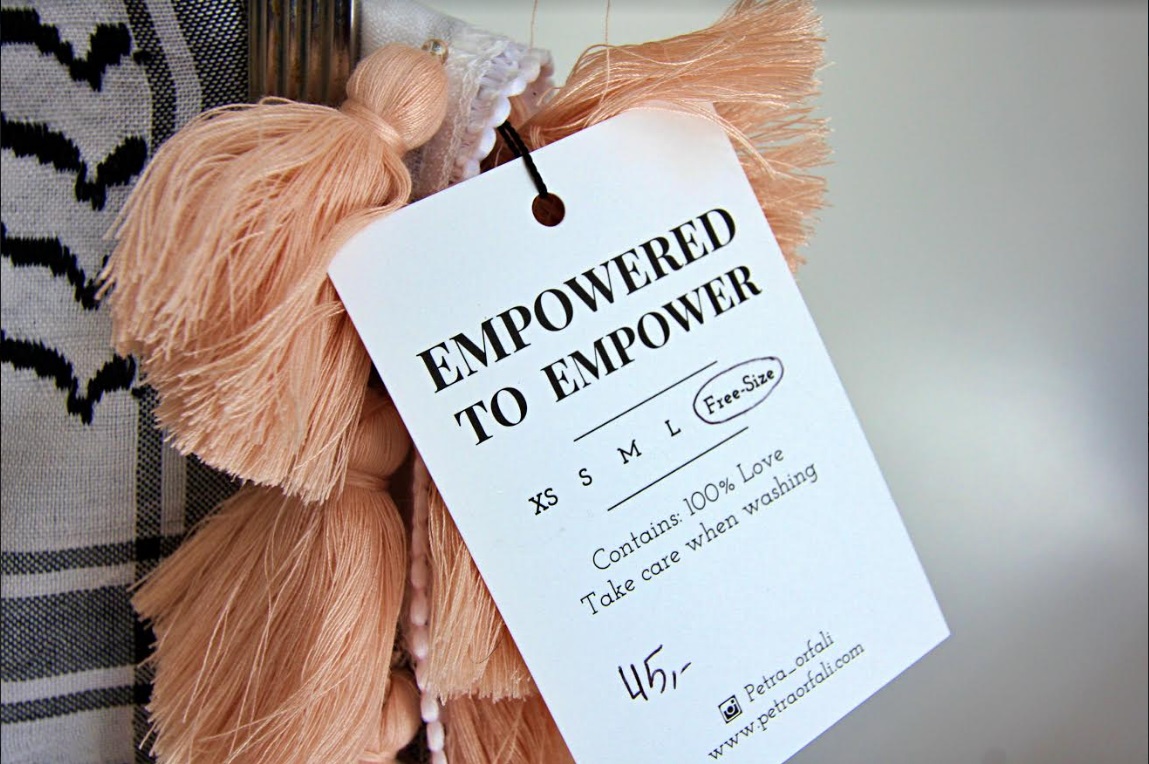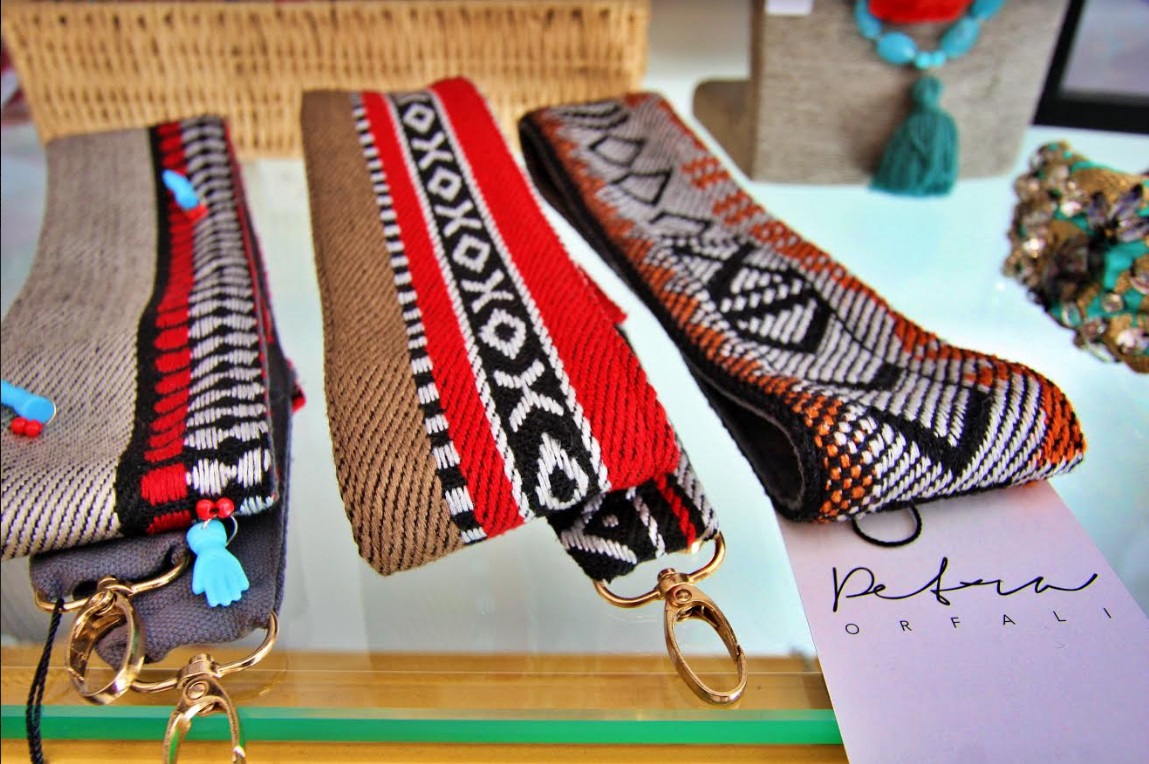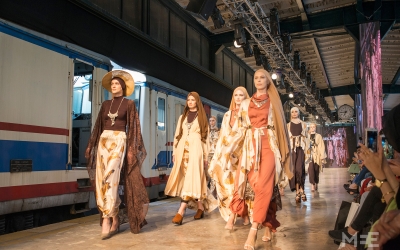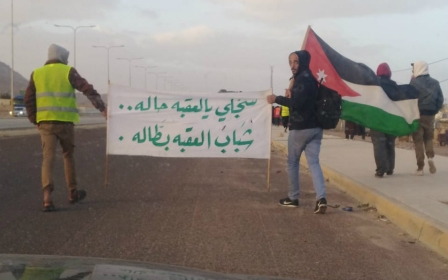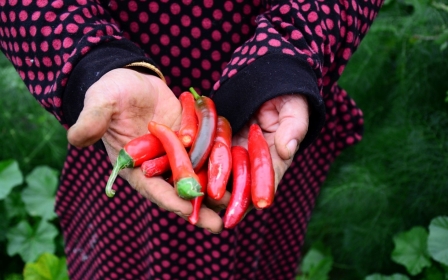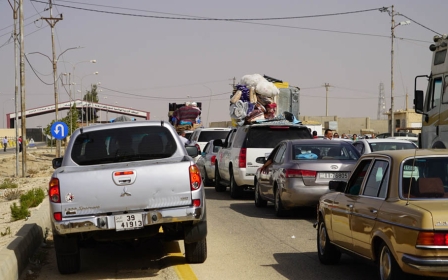This Jordanian designer's business is all about female empowerment
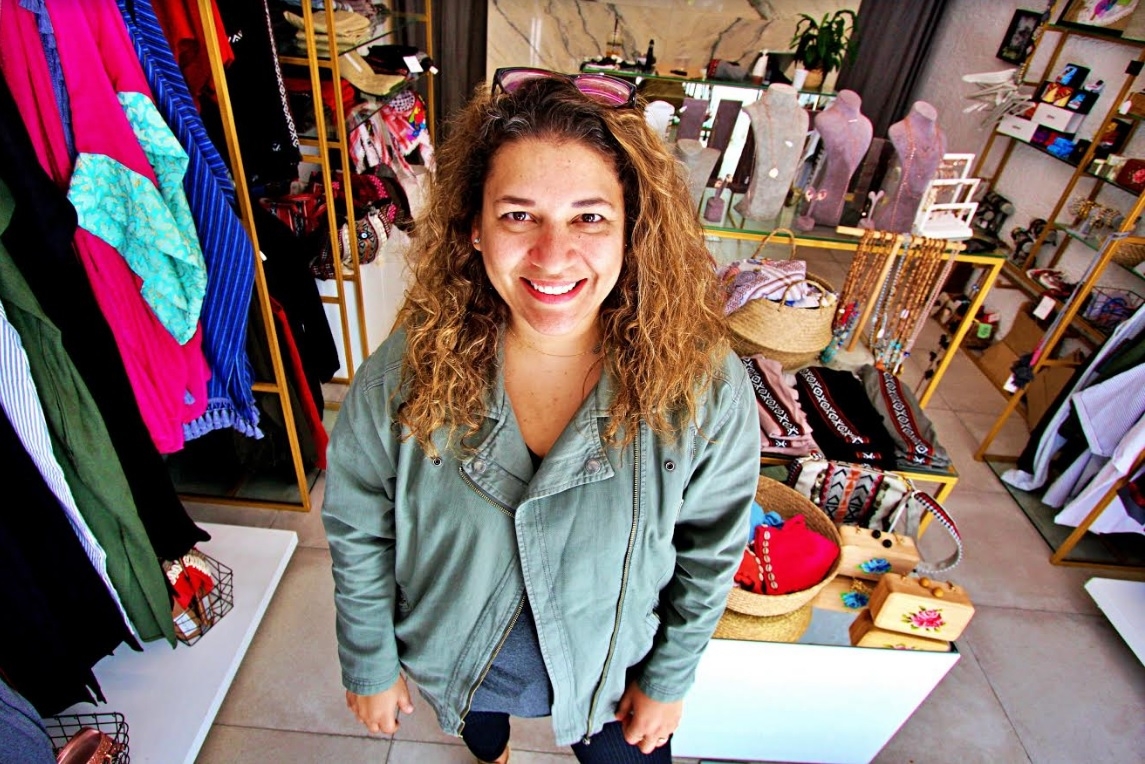
Laughter fills the small, bright workshop as the women, who are busy sewing, threading beads together and stitching tassels on pieces of fabric, chatter and make jokes with one another.
It is a room full of infectious warmth where visitors are welcomed with sweets and delicious Saudi Arabian coffee that is prepared with ginger, cloves and saffron.
Shelves lining the walls are filled with colourful tubs of beads, Turkish evil eyes and crocheted shapes.
Two big windows decorated with white lace curtains look out onto a flourishing garden and provide an opening for the spring sunshine to pour through.
Today, only five of Jordanian fashion designer Petra Orfali’s 23-strong workforce are in the workshop, but further rooms - currently empty except for sewing machines and finished garments - offer extra space for when it is a full house.
Orfali, 36, is providing women in Jordan’s capital Amman with long-term employment opportunities while simultaneously building a brand she envisages expanding overseas.
Not only has she defied societal norms by taking a risk on launching her own business instead of remaining in secure employment – as is often expected – but she is doing so in a country still adjusting to the idea of female entrepreneurs.
Only 3.3 percent of the female adult population are involved in the early stages of launching start-ups in Jordan, compared to 12.8 percent for men, according to entrepreneurship researcher Global Entrepreneurial Monitor.
Everything Orfali sells under her brand via her online store and boutique shop is designed by her. Towards the end of last year, her brand went viral when Qatari social media influencer Abdul Aziz al-Ajail posted a video of himself donning her Bedouin "Z" jacket design.
None of her success would be possible, however, if it were not for the group of women Orfali employs who bring her designs to life.
Confident and inquisitive, these women are earning a wage, learning skills, gaining financial independence and bringing a change in perception that is gradually seeping into the wider community, where many come from conservative and patriarchal backgrounds.
They are a key part of a wider change in people’s attitudes taking place in the neighbourhood called Jabal al-Natheef, wrapped around one of Amman’s seven hills.
Among the group is 37-year-old Asmahan, who like other women interviewed doesn't want to use her real name. She is Orfali’s longest-standing employee having worked with her for eight years and the first woman from her husband’s family to go out to work.
“I broke the rule in my husband’s family. Women weren’t allowed to leave the house before me,” the mother-of-six tells Middle East Eye. “It’s totally changed my life – socially, financially and mentally. It’s made me more powerful and independent.”
The women work flexible hours across four days a week and are welcome to work from home, though they enjoy going to the workshop.
Asmahan laughs as she recalls her initial struggle trying to juggle being a mother and her work as an artisan. She now sticks to a schedule and has to be very organised, but she says her children are proud of her and her husband is very supportive.
The money she earns has enabled her to send her youngest child to preschool where he is already learning English – an opportunity which was unavailable to his siblings.
For 32-year-old Layla*, the extra money has allowed her to provide for her children in a way she was not able to before and given her the added perk of being able to reward herself.
“Every couple of months I think ‘what do I deserve to pamper myself with?’” she says with a big smile. “I’ve treated myself to things like a ring and jilbab (a long outer garment worn by some Muslim women for special occasions). But, most importantly, I don’t want my children to feel they need something I can’t provide.”
Her family love the items Layla makes and she, along with the other women, say they are setting a precedent for future generations, demonstrating to their children the importance of gaining education and skills.
Both Asmahan and Layla have the support of their families. However, many of Petra’s workforce had faced opposition from the family towards the concept of earning a living when they initially started out.
'We’ve reached a point now where my name means something'
- Petra Orfali, designer
One member of the team was mocked by her parents when she first started working, Orfali tells Middle East Eye. However, after a few months of witnessing her commitment, her father was so proud of her that he built her a separate room for her sewing machine so that she could work from home.
Another woman arrived at the workshop after being treated very badly by her in-laws while her husband was in prison. Over a period of five months, Orfali and the team both trained her and helped rebuild her self-esteem.
“It’s more than just work. I listen to these ladies and help them where I can. Seeing them happy means the world to me,” says Orfali.
Unemployment is already very high in Jordan at 18.7 percent, with women facing additional barriers, despite the fact that overall the level of education among women is high.
Female participation in the country’s labour market compared to men is weak at 17.7 percent - one of the lowest in the world - compared to 59.4 percent, with married women often not expected to work.
Non-profit community development organisation Ruwwad – based in Amman as well as Egypt, Lebanon, and Palestine – aims to tackle problems prioritised by the communities it works with.
It focuses specifically on empowering women by building partnerships with social entrepreneurs and it was through Ruwwad that Petra found the team of women she now employs.
“One of the biggest issues faced by women is in terms of their ability to access work,” Samar Dudin, regional director and head of programmes at Ruwwad, tells Middle East Eye. “Petra makes addressing these obstacles her main focus.
“She also takes the women to social events, discusses important issues with them and enhances their understanding of ways to access opportunities and overcome obstacles in their own lives. She’s totally committed to the community she is a part of.”
What began as more of a hobby, decorating keffiyehs (a traditional Middle Eastern headscarf), rather than a serious business venture, has now grown into a prosperous brand and a vital lifeline for many in the community.
In 2010, when popularity for her designs began to take off, Orfali took the plunge and left her job as a marketing and business development manager at Zalatimo Sweets. Two years ago, she opened her boutique store in the city centre.
It has not been an easy ride – she has had to deal with plenty of failure along the way. Figuring out how to create a business model that works both financially and for the community has been her biggest challenge but the hard work is paying off.
“We’ve reached a point now where my name means something. We have regular clients and every week we have new designs,” she says.
This sustainable model of employment at a grassroots level is rare is Amman, where many similar projects can only offer work for a limited period of time.
Her focus on empowering women does not just begin and end with the workshop; she is currently helping one of her shop staff members, 24-year-old Dana*, create her own artistic designs across clothes and shoes. And she mentors three women who are hoping to launch brands as well.
Orfali’s aim is to continue to grow the business, continue to increase her team of women and expand her stores around the world.
“Empowerment is about supporting each other and when you see the results of what you’re doing and how you’re helping people, you can’t help but do it over and over again,” says Orfali. “It is an amazing feeling.”
*Some women interviewed for this article preferred not to use their real names
Middle East Eye propose une couverture et une analyse indépendantes et incomparables du Moyen-Orient, de l’Afrique du Nord et d’autres régions du monde. Pour en savoir plus sur la reprise de ce contenu et les frais qui s’appliquent, veuillez remplir ce formulaire [en anglais]. Pour en savoir plus sur MEE, cliquez ici [en anglais].


